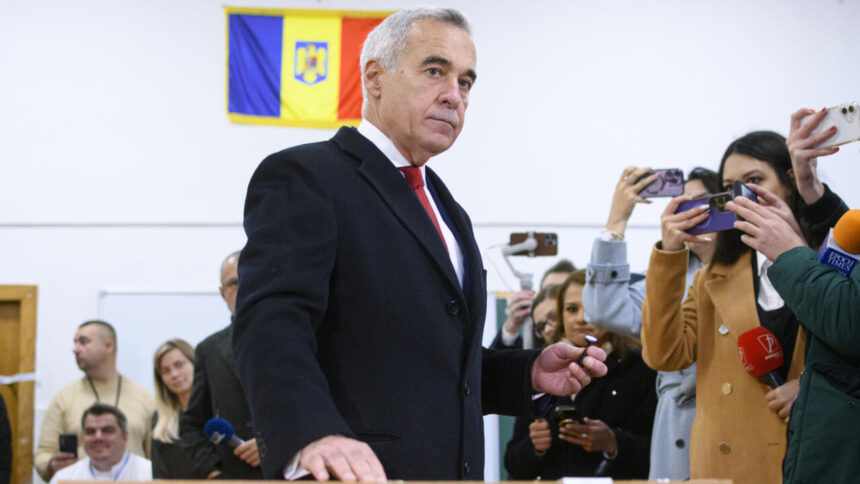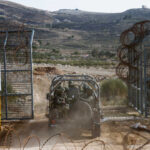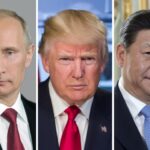Summary by Geopolist | Istanbul Center for Geopolitics:
In December 2024, Romania did something few democracies have dared: just days before the final round of voting, it annulled its presidential election. The decision was based on an intelligence report that confirmed widespread foreign interference—most of it benefiting Călin Georgescu, a far-right candidate who had unexpectedly won the first round. On paper, this looked like a principled stand against extremism and outside meddling. But in practice, it has left Romania’s democracy more vulnerable than before.
Georgescu was not disqualified for his views alone—although his open admiration for fascist figures and pledges to ban political parties were certainly enough to raise alarms. He was removed from the race after investigations revealed troubling connections to paramilitary groups and influence networks tied to Russia and Iran. His campaign relied heavily on digital platforms like TikTok and Telegram, where slick, emotionally charged messages traveled fast and far. Much of it was conspiracy-laden and designed to erode trust in institutions—and it worked. His disqualification didn’t quiet the movement behind him; it lit a fire under it.
Many Romanians believed the election cancellation was necessary. But just as many felt the reasoning wasn’t fully explained—and that’s where the real damage began. Georgescu’s supporters now see him as a martyr, not a threat. In the minds of many, this wasn’t about safeguarding democracy. It was about silencing someone who dared to challenge the system.
And Georgescu is far from the only figure on the scene. Others have quickly stepped in to fill the vacuum. Chief among them is George Simion, head of the far-right AUR party, who now leads in the polls. His playbook is familiar: stir nationalist sentiment, rail against the EU, and claim the establishment is out to suppress the will of the people. Then there’s Diana Șoșoacă—another hardliner with pro-Russian leanings—who was also banned from running. Former Prime Minister Victor Ponta and rising figures like Ana-Maria Gavrilă are also angling to inherit Georgescu’s anti-system base.
Meanwhile, Romania’s centrist and pro-European parties seem unsure how to respond. Nicușor Dan, a moderate with technocratic appeal, is one of the few candidates who could win a runoff, but his path is muddied by a fragmented field and voter apathy. The ruling coalition is offering little more than business as usual, and its chosen candidate, Crin Antonescu, is widely seen as uninspiring.
It’s not hard to see why this is happening. Romania has long struggled with real, deep-seated problems: political corruption, inequality, rural poverty, and a lack of investment in education and infrastructure. Youth unemployment in the countryside is staggering, and digital literacy remains low, despite Romania’s strong tech sector. That’s a dangerous combination in an era where misinformation spreads faster than facts. People are frustrated—and the far right offers a simple story and someone to blame.
It’s tempting to think that banning the loudest voices will fix the problem. But that’s an illusion. Removing a candidate doesn’t remove the anger, the fear, or the belief that the system is rigged. It just redirects that energy elsewhere. And if there’s no meaningful alternative offered—no hopeful, inclusive, and credible vision for the future—then it’s only a matter of time before someone new rides that wave to power.
Romania’s experience is not unique. But it is instructive. It shows that democracies can’t afford to be reactive when it comes to extremism and foreign interference. Waiting until the problem explodes—and then hoping a legal fix will make it go away—isn’t good enough.
What’s needed is resilience: long-term investment in civic education, digital infrastructure, independent media, and institutions that people can actually trust. The EU and NATO can play a role here, but Romania has to lead the charge itself. That also means creating real opportunities—especially for young people in places the state has long neglected. When citizens believe their vote matters, that the system works for them, and that democracy can deliver, extremists lose their appeal.
Perhaps most alarmingly, Romania’s crisis is now playing out on a broader geopolitical stage. Not only did Moscow condemn the election cancellation, but so did voices close to former U.S. President Donald Trump—including his Vice President JD Vance and even Elon Musk. Some Romanian politicians are now calling for the removal of American troops and the suspension of NATO’s presence—a deeply worrying development for a country on Russia’s doorstep.
In the end, this isn’t just about Romania. It’s about what happens when democracies try to put out a fire with a blanket instead of addressing what sparked it in the first place. The removal of extremist candidates may disrupt a campaign—but it doesn’t dismantle the networks, narratives, or grievances that fuel them. If we want to defend democracy in more than name, we have to start with trust—and that means rebuilding from the ground up.
Read more below:







